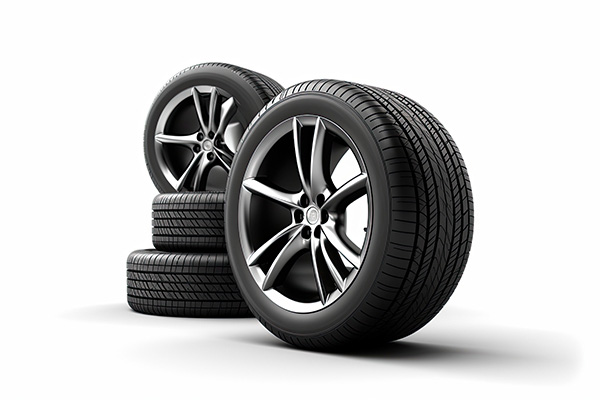
When it comes to customizing vehicles, one of the most popular upgrades is installing larger wheels. But how exactly do these bigger wheels affect your car’s performance, especially in terms of fuel efficiency and ride comfort? Many drivers opt for larger wheels for their aesthetic appeal or to enhance handling, but there are key trade-offs that can impact both your wallet and driving experience. Let’s see how larger wheels influence your vehicle’s fuel economy and comfort on the road.
Fuel Efficiency
One of the first areas where larger wheels impact performance is fuel efficiency. If you're considering an upgrade, it's important to understand that larger wheels can have a negative effect on your car's gas mileage.
Increased Weight
Larger wheels are generally heavier than smaller ones. That extra weight forces your engine to work harder, which consumes more fuel.
Rolling Resistance
Larger wheels often come paired with wider tires, which increases rolling resistance. The more resistance, the more fuel your engine has to burn to maintain the same speed.
Tire Tread and Friction
Depending on the type of tires you choose for your larger wheels, you might experience increased friction. For example, performance tires designed for better grip will cause more drag, further reducing fuel economy.
In short, upgrading to bigger wheels can lead to an increase in fuel consumption, making frequent stops at the pump more common. While the difference may not seem huge initially, it adds up over time.
How Larger Wheels Affect Comfort
Now, let’s talk about comfort. One of the most noticeable changes when you upgrade to larger wheels is the difference in ride quality. Unfortunately, larger wheels don't always lead to a smoother ride—in fact, the opposite is often true.
Low-Profile Tires
Bigger wheels typically require low-profile tires, which have less sidewall height. This reduction in sidewall can lead to a harsher ride, as there's less cushioning to absorb road imperfections like bumps, potholes, and cracks.
Stiffer Ride
With larger wheels, you’ll also experience a stiffer ride. The suspension is less able to absorb shocks when paired with low-profile tires, making every bump on the road feel more noticeable.
Impact on Handling
On the flip side, some drivers prefer the stiffer ride because it often results in improved handling and responsiveness. Larger wheels can offer better cornering and grip, especially at high speeds. But you’ll need to weigh these benefits against the potential for discomfort on daily commutes or longer trips.
If comfort is a top priority for you, then sticking with smaller wheels and tires that provide more cushioning may be a smarter choice.
The Balance Between Performance and Practicality
So, should you go for those larger wheels you've been eyeing? The answer really depends on what matters most to you as a driver. Larger wheels undeniably enhance the visual appeal of your vehicle, giving it a more aggressive and sporty stance. They can also improve handling, making your car feel more agile on the road.
However, this comes at the expense of fuel efficiency and ride comfort. For drivers who prioritize aesthetics and performance, these trade-offs may be worth it. But if you're more concerned about maximizing gas mileage or maintaining a comfortable ride, you may want to think twice before making the switch.
Consider Your Driving Habits
Another important factor to consider when thinking about wheel size is how you typically drive. If you spend most of your time driving in the city, where stop-and-go traffic is the norm, the decreased fuel efficiency of larger wheels might be more noticeable—and costly. On the other hand, if your driving consists mostly of highway miles, the effect on fuel consumption may be less dramatic.
The same goes for comfort. If you're driving primarily on well-paved roads, the impact of larger wheels on ride quality may be minimal. But if you frequently encounter rough roads, potholes, or uneven terrain, you’ll definitely feel the difference.
Not sure if bigger wheels are right for you? Drop by Bimmer Rescue for expert advice and a full inspection of your current tires and wheels. We’ll make sure your vehicle is set up for comfort and efficiency!
Make An Appointment